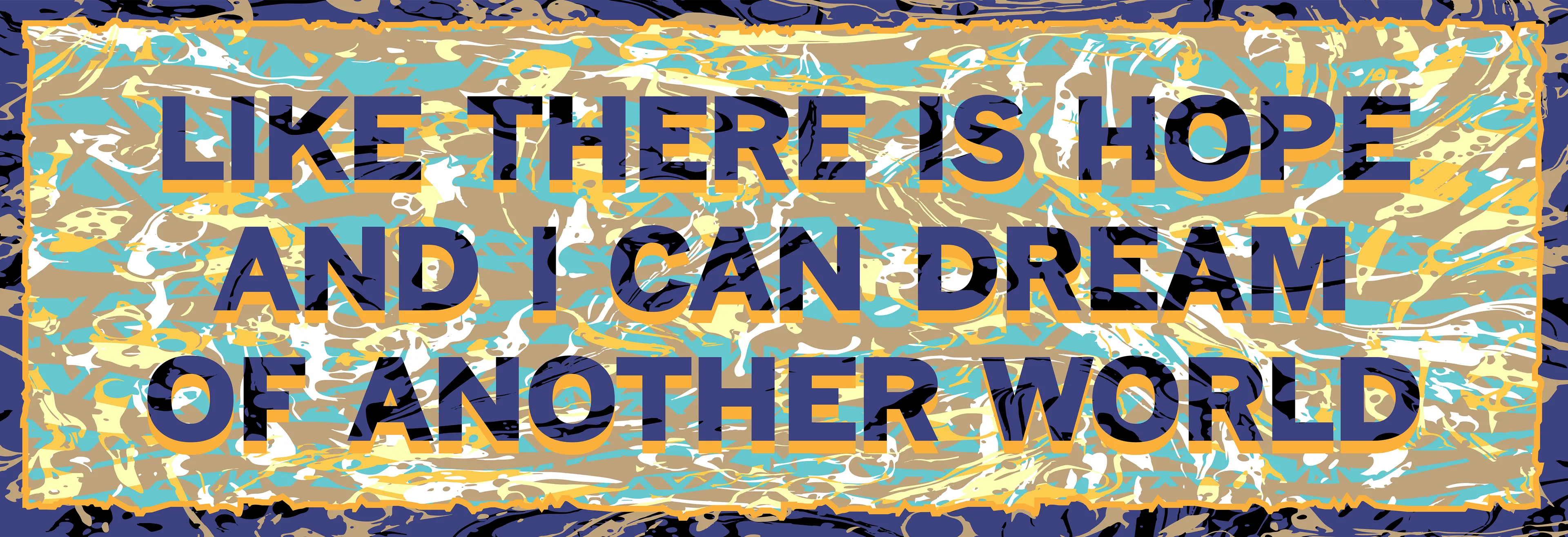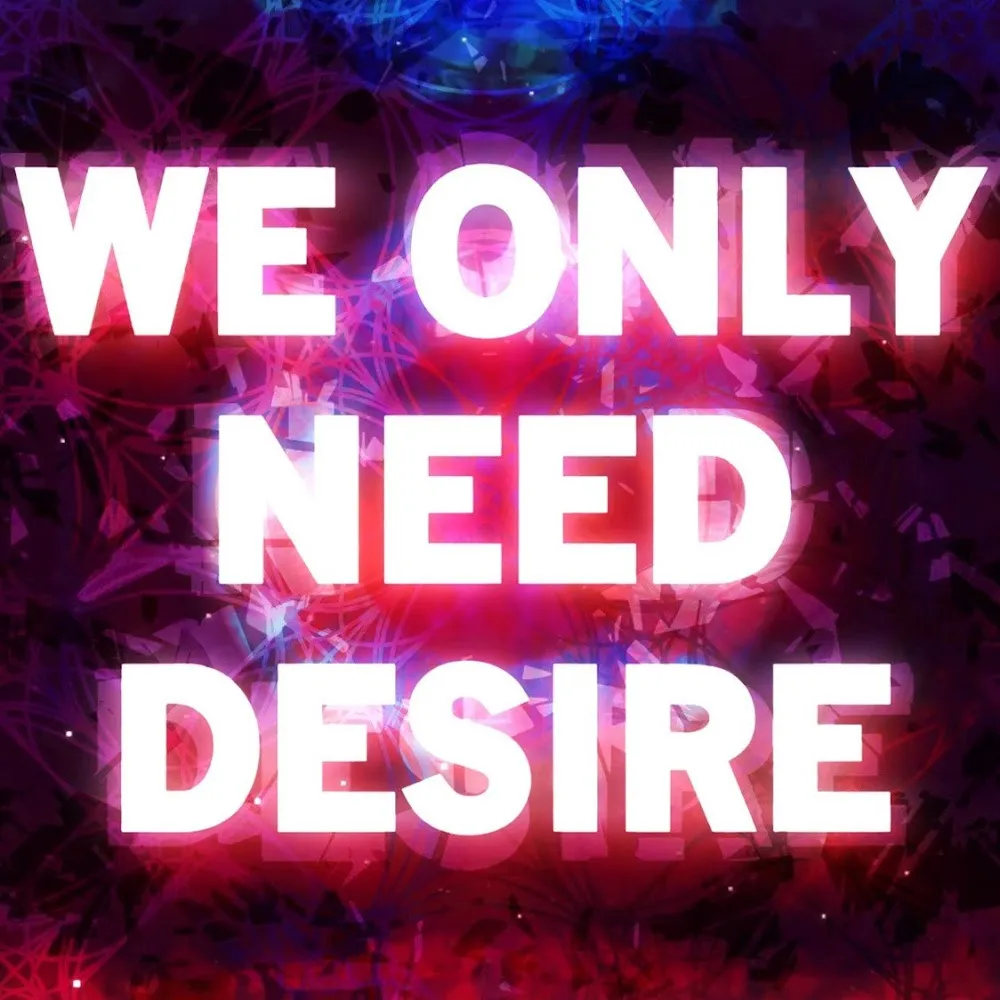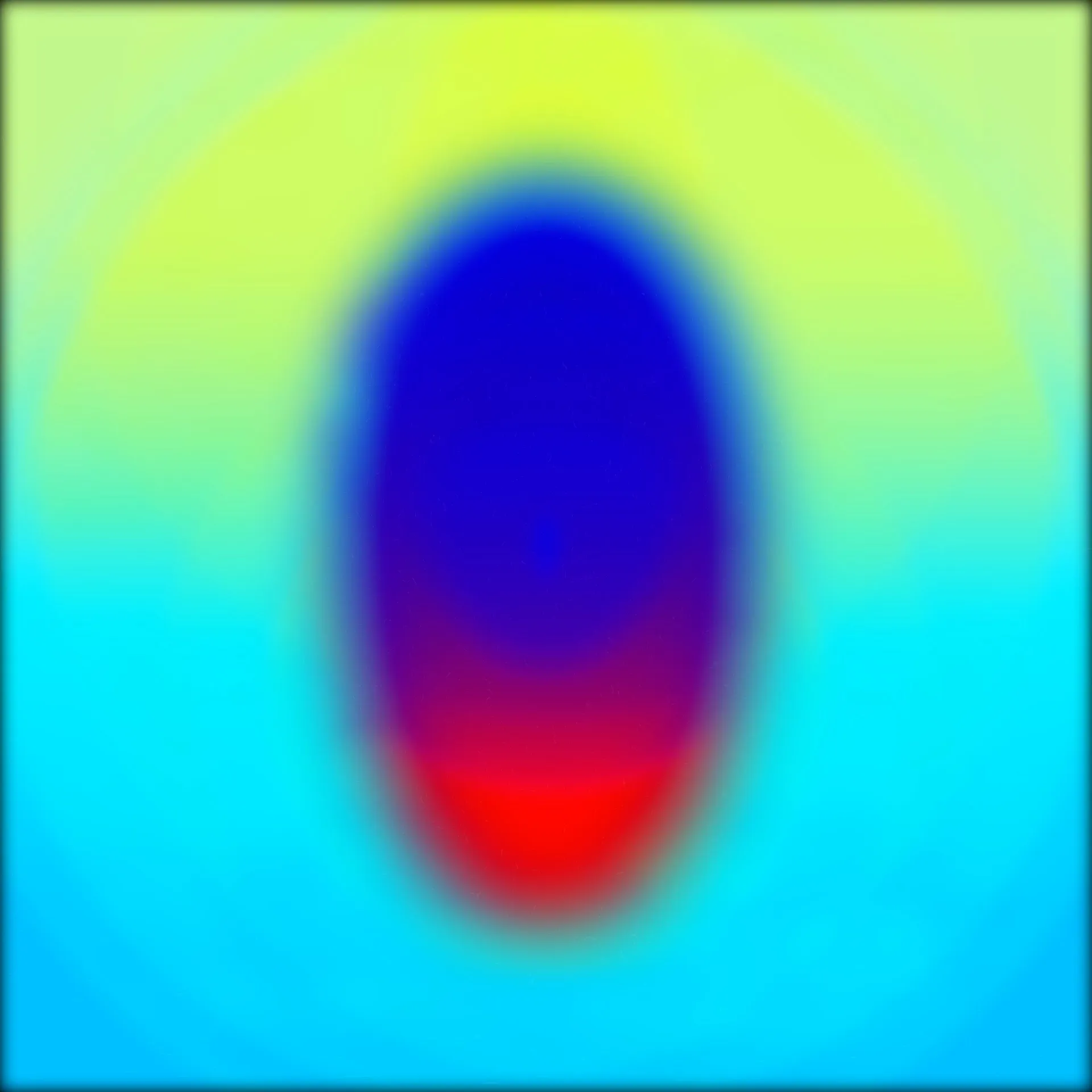Subscribe to get the latest on artists, exhibitions and more.
Internal Confrontations: Interview with Mark Titchner

Leyla Fakhr: Your work often presents deceivingly simple text, but it is very much about prompting your audience to have complex internal confrontations. Tell me more about this?
Mark Titchner: What I'm most interested in is how we as individuals exist inside something bigger, and how our ideas of ourselves often come from outside of us. So it's almost like trying to explore this battle between what is an individual and what is society? How does an individual relate to society and how does society inform an individual? It's a never-ending process, I suppose.
Leyla Fakhr: What kind of mediums do you usually work in?
Mark Titchner: I work across a range of media, a lot of large-scale kind of digital works, or video, sound and performance, some sculpture, but it's all evolving around text. Sometimes I use text in an obvious way and other times the text is broken up or fragmented. A lot of my projects are in public spaces or like non gallery spaces. I'm interested in places that we share, such as libraries, stations and hospitals. I also work quite a lot with people through workshops before I start my work.
Leyla Fakhr: How did you become an artist?
Mark Titchner : I think, like most people who end up making art, I just started off drawing. As a kid I liked reading comics and I liked music. I really liked all the record covers. So even without realizing it, early on, I was looking at images and texts together. Later I got more interested in technical things like learning how to paint and went to art school. As soon as I started art school I realized that I wasn’t’ interested in painting. So started doing a lot of different things, just kind of trying to find out what it was that I was interested in. And I guess, in a way, that was a problem, because I was interested in everything. And it took me maybe six or seven years after finishing college to really start my practice.
I think the big thing for me was actually starting to work directly with languages and material, as I'd always done research. I just never thought about including the text until I did and as soon as I started doing that, it felt that I made this connection between text and a voice. Because when I extract a piece of text, it suddenly becomes a voice speaking to you. It's a certain kind of voice and it has a certain kind of tone, depending on how it is presented.
Leyla Fakhr: What I really appreciate about your work is that pieces of text have different personalities and different voices, what is that about?
Mark Titchner: Yeah, I mean, the voice in the work does shift. Sometimes it is almost like bullying, misanthropic or authoritarian voice. That's the most common one. That's a sort of George Orwell, big brother kind of bullying voice. But other times I've made projects where this voice needs to be like a child, or it needs to be a friend… you have to use a different kind of tone of voice and also have a different kind of look to the work. One of the things that I try and do with my work is to use really simple language. So I always ask myself can a child read this or can someone whose English isn't great read this, because it's not about trying to impress them with complicated words. It's about trying to have an idea, which is difficult, but trying to express it in a way that's clear and accessible. So I get quite obsessed about small little things. You know, whether this word feels right. Almost like an emotional response to language.
Leyla Fakhr: Tell me more about your creative process. What drives you?
Mark Titchner: It's quite a slow process, the most important aspect is collecting the text. So what I tend to do is when I'm reading or listening to music, or watching the news, I will make a note or keep notebooks of texts. And what generally happens is that if it's interesting material it will stick around. It might take a few years, but I'll just basically go backwards and forwards in my notebook, making sure it is the right voice? Is it the message that I'm trying to come up with?
Other times, if it's a project, which is focused on a specific place and time we'll work with groups of people, and we'll literally work on generating the text together through conversation, or I'll try and find a way of sort of encapsulating what is being said. I try and balance it with the image to get the kind of right emotional density to it. So it is reflected if I want something to be dark and threatening, it looks quite different to something joyous for instance. Like I'm trying to see the texts as exploding into existence and the aesthetic being close to breaking point. It's actually quite intuitive.

Leyla Fakhr: How did text come into your practice?
Mark Titchner: One of the reasons that I use text is because for me, it was the most direct way of engaging with an individual. I used to make big abstract wall drawings and text and I had seen people literally walk through galleries and not engage with them. Using text was a way of making the audience stop, as it's really difficult not to read it. So for me the text is just a way of getting someone to stop and internalise something and think about it. They may be go off and have thoughts about what they read, and they might go back and read it again but they may be feeling different then. So in a way the text is kind of moving. I am trying to allow the work to be part of a sustained dialogue, but also with my public work to be part of the city and environment. You know that is really important to me that these spaces are open to all. So you don't have a specialized audience.
Leyla Fakhr: Where do you think the future of art takes us?
Mark Titchner: Wow, it's a big question. I mean, we've lived through a period where a lot of what has been done by institutions and galleries was driven by commerce. And now, institutions, especially, should be looking at themselves and realise that the world is changing and that we need to be something else now. And I guess, as artists, we're just people in the world who are reflecting upon ourselves and in the way that we live.
As I also teach in an art school, I see how students are quite engaged now, and also how much they value their community. In the past, there's been this idea that if you are an artist, you ought to be in your studio make your work without talking to anyone. But I think, now, collaboration and conversation are one of the most critical things for moving forward.
Mark Titchner’s installation titled ‘Like there is hope and I can dream of another world’ is on view from 19 August - 14 September at Hauser & Wirth London, as part of a major new exhibition by the arts and mental health charity Hospital Rooms.
This interview is an extract from the video interview Verse Meets: Mark Titchner, directed by Shahab Graham.
Mark Titchner (b. 1973, Luton, UK) was nominated for the Turner Prize in 2006, participated in the Venice Biennale in 2007 and was Artist in Residence at the Art Gallery of Ontario, Toronto in 2012. In 2018, he completed a major new permanent public work, Me, Here Now, which is installed at London Bridge Station. In addition, his work is held in numerous public collections including Arts Council, Tate, British Council, Government Art Collection, South London Gallery, Manchester Art Gallery, Birmingham Museum and Art Gallery and Guildhall Art Gallery.
Solo exhibitions include Some questions about us, Firstsite, Colchester (2019), Mark Titchner, CGP/Dilston Grove, London (2014), Please Believe These Days Will Pass, The Young gallery at The Art Gallery of Ontario, Canada (2012), Be true to your oblivion, New Art Gallery, Walsall (2011), The Age of Happiness, Hellenic American Union, Athens (2009) and Run Black River, Run, BALTIC, Gateshead, (2008). He currently lives and works in London.
Leyla Fakhr is Head of Programming at Verse. After working at the Tate for 8 years, she worked as an independent curator and producer across various projects internationally. During her time at Tate she was part of the acquisition team and worked on a number of collection displays including John Akomfrah, ‘The Unfinished Conversation’ and ‘Migrations, Journeys into British Art’.
She is the editor of the monograph on artist Reza Aramesh and producer of documentary ‘Monir’, a film on the life and work of the artist Monir Shahroudy Farmanfarmaian. She was a curator at Green Cardamom (2006-2009), where she worked on numerous exhibitions with artists predominantly from South Asia and the Middle East creating projects internationally.
Leyla Fakhr
Leyla Fakhr is Artistic Director at Verse. After working at the Tate for 8 years, she worked as an independent curator and producer across various projects internationally. During her time at Tate she was part of the acquisition team and worked on a number of collection displays including John Akomfrah, ‘The Unfinished Conversation’ and ‘Migrations, Journeys into British Art’.
She is the editor...
Mark Titchner
Mark Titchner (b. 1973, Luton, UK) was nominated for the Turner Prize in 2006, participated in the Venice Biennale in 2007 and was Artist in Residence at the Art Gallery of Ontario, Toronto in 2012. In 2018, he completed a major new permanent public work, Me, Here Now, which is installed at London Bridge Station. In addition, his work is held in numerous public collections including Arts Council...


